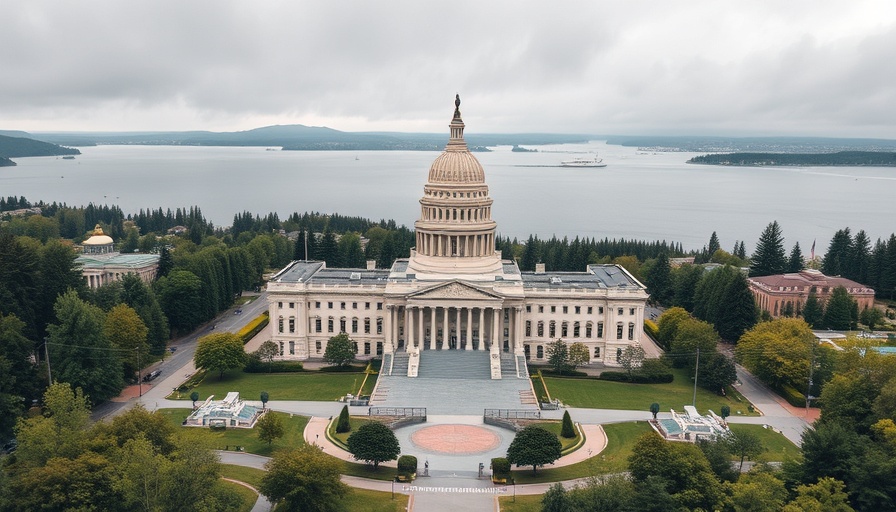
Understanding Washington's New Budget: A Game Changer for Residents
Washington state's recently approved two-year budget totaling $77.8 billion is not just a number; it's a reflection of a blend of priorities and challenges facing the state. Lawmakers approved the plan on a narrow margin, with the House voting 52-45 and the Senate 28-19. This decision comes as state officials, led by Gov. Bob Ferguson, confront a projected $15 billion shortfall, compounded by a growing demand for services, inflation, and various costly new programs.
What's In The Budget?
The final package outlines substantial allocations, including $4.3 billion in new taxes directed towards businesses, financial assets, and technology services. On the other side, it also mandates $2.7 billion in service cuts. Lawmakers are optimistic these measures will enable funding for critical services like education, mental health support, and homeless outreach while maintaining a savings cushion for future fiscal integrity.
The Tension Between Taxes and Services
As discussions around this budget unfolded, a contentious debate emerged regarding the approach to address the budget shortfall. Progressive Democrats rallied for a wealth tax, aiming for a more equitable distribution of fiscal responsibilities. Conversely, many Republicans favored cuts as a solution, arguing that additional taxes would disproportionately affect everyday citizens. Senate Minority Leader John Braun raised concerns, emphasizing that the new tax structure could ultimately burden low- and middle-income families.
Impacts on Education and Community Services
The spending aims to boost K-12 education significantly, a move praised by Gov. Ferguson in his statements following the budget's release. However, with dual demands for expansion in educational funding and service cuts affecting other areas, many residents wonder: how will this balance affect their everyday lives? Advocates for mental health services and homeless initiatives are particularly concerned about how the cuts might impact vital community services they rely on.
The Way Forward: What Lies Ahead
As Washington prepares for the implementation of this budget, all eyes will be on how these financial maneuvers translate to on-the-ground realities for Seattle residents. It's clear that the path forward will require careful navigation, frequent assessments, and perhaps adjustments as reactions from constituents start to form. As citizens, it's crucial to remain engaged and informed about how these shifts impact local governance and community welfare.
In the weeks following its approval, we encourage readers to stay active in discussions concerning this budget. Understanding its implications is vital, and holding lawmakers accountable ensures that the interests of all Washingtonians are addressed.
 Add Row
Add Row  Add
Add 




Write A Comment